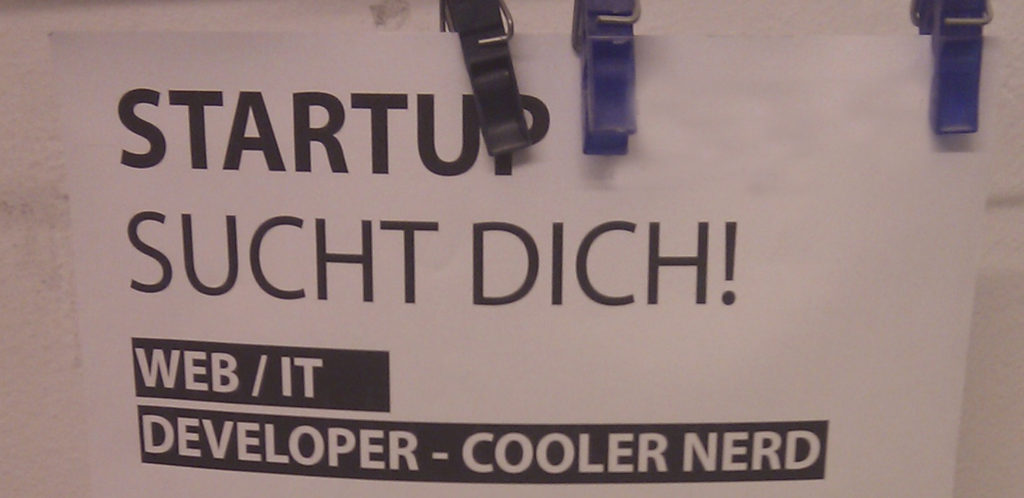Doing business in Berlin VIII: Hiring in Berlin (and what to expect if you’re looking for a job)
Not everything’s about money. Being part of an amazing project is a must for workers here. Also creating or using new technologies, feeling the respect of the boss and having talented co-workers. More than with money, the best way to attract talent is with talented people.
Many people prefer to stay in small or medium startups with easy team management, where they can have a big impact on product, and avoid big companies. Here you can find many companies with 10-25 people, but also an important number of 100-150- employee startups There are a few with more than 1000 people. Zalando, with around 8000 workers (nearly 1000 engineers) is a good example of something that we call startup, but I think it’s something different.
There seems to be a big difference in the selection process depending on the profile needed for the job. People going through HR, finding job postings on websites or Linkedin, are actively looking for work. The typical application process doesn’t put them in a good position for negotiations. I think it’s a good way to find the mass of your team, but may not be the best way to hire specialists. Special positions require people that currently work for another company and you must find them through contacts or headhunters. These people are difficult to pay properly, and convincing them to join a new company is not easy.
Many companies use the traditional selection process. It’s long, with some unuseful steps, and it’s annoying for candidates. Especially for senior people, who are not really open to passing trials as juniors, if you go about it in a different way, with a professional approach directly from the team where the candidate will be, and not disturbing the people already working with interviews and calls during working hours, it will be appreciated.

As I already mentioned, all kinds of developers are needed. Usually people with at least 2 years of experience, and more for new languages or areas like meteor, angular, scala or blockchain. I’ve also seen a really high demand for big data experts and business intelligence profiles. And there’s an emerging demand for engineers in the area of IoT.
People in operations, logistics and online marketing, as well as customer support, are also in demand, and new positions appear every day.
Here there are a lot of foreigners, and many Berlin companies are doing their internationalization from here, creating teams of locals from each country but based in Berlin. So you can look for country managers, online marketing experts, etc…. as many other startups are doing. Bilingual profiles (English+local language, and maybe German) is required.
Hiring is not always easy, but the real challenge is keeping the people on board. They will receive offers every week, and of course in meetups and events they will talk with people who are probably better paid. It’s important to check if the people you hire are planning to be in Berlin for a long time, or only for few months. Creating the right environment and getting the commitment of the people on the project as well as offering a challenging professional career is the key to keep teams.
If you’re looking for a job here: There’s a large range of opportunities, but coming here without a clear idea of the market or your strengths and looking to get a job fast is not a good idea.
It’s better if you do intense research in advance. Maybe include some online job applications, and travel frequently to the city for meetings, fairs and big events to be sure what you want and what you’re looking for.
The opportunities are real, but getting into the job market demands time, networking and effort.
Websites for jobs in Berlin:
http://www.germanystartupjobs.com/
https://startup-berlin.com/jobs
http://www.gruenderszene.de/jobboerse/
https://de.jobspotting.com/de/
https://stackoverflow.com/jobs?location=berlin&range=50
You can read more in:
Doing business in Berlin I
Doing business in Berlin II: events and networking
Doing business in Berlin III: coworking and accelerators
Doing business in Berlin IV: market and trends
Doing business in Berlin V: Incorporating in Germany
Doing business in Berlin VI: Living here
Doing business in Berlin VII: Salaries and taxes
Doing business in Berlin VIII: Hiring in Berlin (and what to expect if you’re looking for a job)
Doing business in Berlin IX: final thoughts
Brexit: an opportunity for Berlin to grow


